WORKING TOWARDS WELLNESS

A comprehensive guide to understanding your 2026 employee benefits program


A comprehensive guide to understanding your 2026 employee benefits program
Medical and Pharmacy
BCBSTX PPO Group #434325 HDHP Group #434327
Telemedicine Teladoc
Prescription Drug Home Delivery Express Scripts
International Pharmacy Mail Order Services CANARX ElectRx International
Dental
855-676-9515 www.bcbstx.com
800-TELADOC (835-2362) www.teladoc.com
800-835-3784 www.express-scripts.com/rx
866-893-6337 855-353-2879
BCBSTX 434328
www.canarx.com www.electrx.com
855-676-9515 www.bcbstx.com Vision Mutual of Omaha/EyeMed G000CLHM
833-279-4358 www.mutualofomaha.com/vision Health Savings Account
800-631-FLEX (800-631-3539)
Flexible Spending Accounts & Lifestyle Account
Basic and Voluntary Life and AD&D Mutual of Omaha G000CLHM 888-493-6902 www.mutualofomaha.com Short and Long Term Disability
Mutual of Omaha G000CLHM
888-493-6902 www.mutualofomaha.com Accident Insurance
Mutual of Omaha G000CLHM 888-493-6902 www.mutualofomaha.com Critical Illness Insurance
Mutual of Omaha G000CLHM
Hospital Indemnity Insurance Mutual of Omaha G000CLHM
888-493-6902 www.mutualofomaha.com
888-493-6902 www.mutualofomaha.com Pet Insurance Nationwide
877-738-7874
https://partnersolutions. nationwide.com/pet/ missioncriticalgroup Legal and ID Services LegalShield/IDShield 800-654-7757
https://accounts.legalshield.com https://idshield.cloud
Employee Assistance Plan Mutual of Omaha G000CLHM 800-316-2796 www.mutualofomaha.com/eap Benefits Assistance Higginbotham 833-898-MISS (6477) missioncritical@higginbotham.net
We know you work hard every day to achieve your personal and professional goals. Since your health and wellness are key to meeting these goals, we are pleased to offer a comprehensive benefits package that supports your health, mind, and body. May you always be Working Towards
To enroll in your 2026 benefits or make benefit changes throughout the year, log in to Bswift through your Paylocity self-service portal.
Date your new benefits begin: January 1, 2026
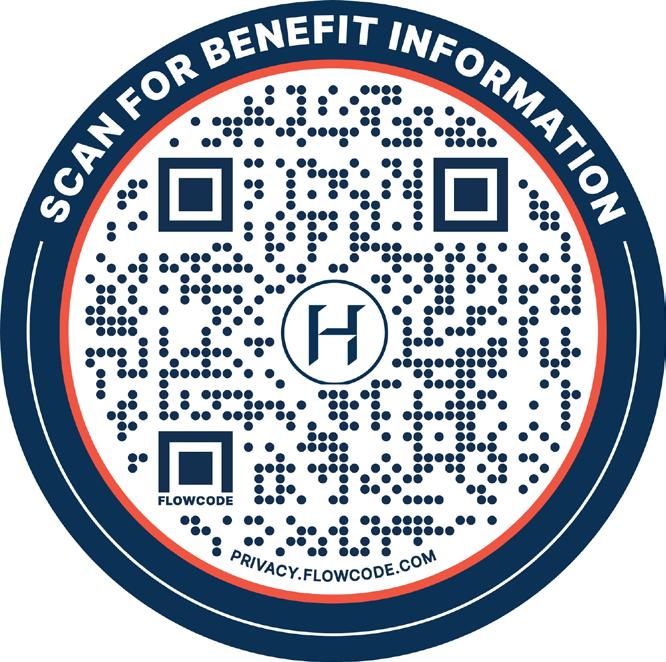
Your plan offers four health plan coverage options. To help you make an informed choice and compare your options, A Summary of Benefits and Coverage (SBC) for each plan is available at www.bcbstx.com or by navigating to your Paylocity self-service portal.
Regular, full-time employee
Eligibility
Enrollment
Coverage Begins
Working an average of 30 hours per week
Enrollment due within 30 days of date of hire
First of the month after your date of hire
Regular, full-time employee
Working an average of 30 hours per week
Enroll during Open Enrollment (OE) or when you have a Qualifying Life Event (QLE)
OE: January 1, 2026
QLE: Based on QLE effective date
Your legal spouse or domestic partner
Child(ren) under age 26.
Child(ren) over age 26 who are fully dependent on you for support due to a mental or physical disability and who are indicated as such on your federal tax return
You must enroll the dependent(s) at OE or for a QLE
When covering dependents, you must enroll for and be on the same plans
Based on OE or QLE effective dates
You may only change coverage during the plan year if you have a Qualifying Life Event, such as:




The medical plan options protect you and your family from major financial hardship in the event of illness or injury.
Medical Provider: BCBSTX Network: BlueChoice
You have a choice of four medical plans:
HDHP/HSA $3,500 Plan – This plan is an HDHP with a $3,500 individual and $7,000 family in-network embedded deductible
HDHP/HSA $2,000 Plan – This plan is an HDHP with a $2,000 individual and $4,000 family in-network aggregate deductible
PPO $3,000 Plan – This plan is an PPO with a $3,000 individual and $6,000 family in-network deductible
PPO $1,500 Plan – This plan is an PPO with a $1,500 individual and $3,000 family in-network deductible


A High Deductible Health Plan (HDHP) lets you see any doctor when you need care. You’ll save money when you use in-network providers. This plan costs less from your paycheck each pay period, but you’ll need to pay more out of pocket before the plan starts covering most medical costs, including prescriptions. If you choose the HDHP, you may also be able to open a Health Savings Account (see page 13).
A PPO plan allows you to see any provider when you need care. When you see in-network providers for care, you will pay less and get the highest level of benefits. You will pay more for care if you use out-of-network providers. When you see in-network providers, your office visits, urgent care visits, and prescription drugs are covered with a copay, and most other in-network services are covered at the deductible and coinsurance level.
If you (and/or your dependents) have Medicare or will become eligible for Medicare in the next 12 months, federal law gives you more choices for your prescription drug coverage. Please see page 32 for more details.
1. Refer to your plan documents for out-of-network coverage.
2. Family members meet only their individual deductible and then their claims will be covered under the plan coinsurance; if the family deductible has been met prior to their individual deductible being met, their claims will be paid at the plan coinsurance.
3. All family members contribute towards the family deductible. An individual cannot have claims covered under the plan coinsurance until the total family deductible has been satisfied.
4. After each eligible family member meets his or her individual out-of-pocket maximum, the plan will pay 100% of their covered expenses. Or, after the family out-of-pocket maximum has been met, the plan will pay 100% of each eligible family member’s covered expenses.
5. All eligible family members contribute towards the family outof-pocket maximum. Once the family out-of-pocket maximum has been met, the plan will pay each eligible family member’s covered expenses at 100%.
If you are enrolled in a BCBSTX medical plan, your pharmacy coverage uses Prime Therapeutics
You can keep your prescription drug costs down if you:
Fill your prescriptions at an in-network pharmacy
Ask your doctor if a generic drug is an option
Get up to a 90-day supply of covered drugs used regularly through Express Scripts
Use the Accredo specialty pharmacy service for specialty drugs
Pay less and eliminate the need for claim forms when you use in-network pharmacies for your prescriptions. Show your BCBSTX ID card to your pharmacist and pay the amount shown in the medical benefits summary chart. If you use an out-of-network pharmacy, you must pay in full when the prescription is filled and file a claim for reimbursement.
Express Scripts provides a convenient, cost-effective way to receive up to a 90-day supply of prescription drugs.
Online – Sign up at www.express-scripts.com/rx
Mobile – Download the Express Scripts app
Phone – Call 833-715-0942 and have your member ID card and your prescription ready.
Mail – Log in to www.bcbstx.com, complete the mail order form, and send it with your Rx and payment to Express Scripts.
Doctor – Ask your doctor to fax, call, or email your prescription to Express Scripts for you.
Refill dates are shown on each prescription label. You can choose to be reminded by phone or email.
Go to www.myprime.com or www.bcbstx.com –or download the BCBSTX app to:
Find nearby network pharmacies
Look up drugs and costs
BCBS works with Accredo to make managing your specialty prescriptions easier. You can enjoy free home delivery, track your orders online, and get 24/7 support whenever you need it. MCG also offers a FREE prescription savings program— details are coming up on the next page!
1. Call 833-721-1619 to register. A representative will work with your doctor on the rest.
2. After you register, go to www.accredo.com or download the Accredo app.
3. Before your scheduled fill date, someone will contact you to:
» Confirm your drugs, dose, and the delivery location.
» Check any prescription changes your doctor may have ordered.
» Talk about any changes in your condition or answer any questions about your health.
Accredo gives one-on-one counseling to help you with your treatment goals, manage any side effects, stick to your regimen, and monitor your progress. Accredo can also help with any financial or insurance concerns you may have. Visit www.accredo.com or call 833-721-1619.
The BCBSTX Pharmacy Care Management team reviews prescription claims and may call you to discuss:
Harmful drug interactions
Specific drug requirements
Cost concerns
Always ask your doctor about your prescriptions. If you have benefits questions, log in at www.bcbstx.com or call the number on the back of your ID card.
Mission Critical Group offers two international mail-order programs through PBIRx that provide select brand-name medications from licensed pharmacies in countries such as Canada or the U.K. at zero cost. These programs allow you to conveniently receive your prescriptions by mail while helping you save on medication expenses.
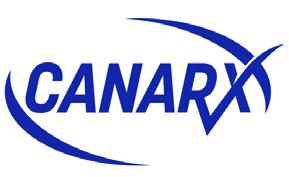
CANARX provides access to an affordable international mail order program for select brand name prescriptions. This program is voluntary and offered in addition to the prescription benefits available with our medical coverage.
$0 copay
Three-month supply with three refills
Free shipping directly to your home
No out-of-pocket expenses
If your prescription is available through the CANARX formulary of more than 400 brand name drugs and you have taken the medication for at least 30 days without complications, then you can send your prescription to CANARX for filling. Your physician can fax the prescription to CANARX or you can download an enrollment form online and mail the completed form with your original prescription to CANARX. Allow up to four weeks for delivery when ordering new medications. CANARX will call you prior to each refill to ensure you have a continuous supply of medication.
Online – www.canarx.com WebID: MCG
Call – 866-893-6337
Fax – 866-715-6337
You can also enroll online, and have prescriptions faxed or mailed. Once enrolled, you can submit for prescription refills online through the refills form as well.
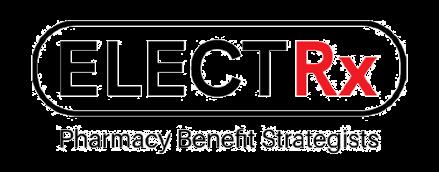
The ElectRx International mail order program offers savings on certain specialty prescription drugs and diabetic medications. Your copay is waived and you pay $0 for all drugs on the ElectRx formulary.
Here is how you can begin using the program:
Mail – If your prescription is available through the ElectRX formulary and you have taken the medication for at least 30 days without complications, then you can send your prescription to ElectRx.
Fax – Have your physician write a prescription with three refills and fax it to ElectRx at 833-353-2879
Phone – Call 855-353-2879 and a Customer Service Representative will help you complete the enrollment process and place your order. You will be asked questions related to your medical condition, including any known allergies and what prescription drugs you are currently taking. Have a list of your prescription drugs available when you make the call. Allow up to four weeks for delivery when ordering new medications. ElectRx will call you prior to each refill to ensure you have a continuous supply of medication. You will also receive an automated reminder notification when you need a refill. Shipping for refills may take up to 15 business days from the date of completed requirements.
For more information or to find out if your prescription is on the ElectRx formulary, call 855-353-2879 or email info@electrx.com
Blue Access for Members (BAM) is the secure BCBSTX member website where you can:
Check claim status or history
Confirm dependent eligibility
Sign up for electronic EOBs (Explanation of Benefits statements)
Locate in-network providers
Print or request an ID card
Review your benefits
Get tips to live and eat healthier
To get started, log in at www.bcbstx.com and use the information on your BCBSTX ID card to complete the registration process.
The BCBSTX app can help you stay organized and in control of your health anytime, anywhere. Log in from your mobile device to access your BAM account, including:
Track account balances and deductibles
Access ID card information
Find doctors, dentists, and pharmacies
Text BCBSTXAPP to 33633 or search your mobile device’s app store to download.
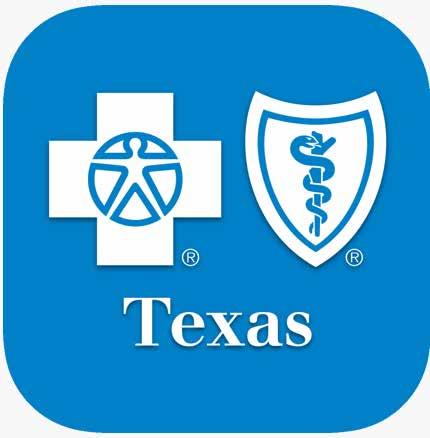
Call 800-581-0368 for immediate access to registered nurses who can answer general health questions, make appointments with your doctor, and help determine where to go for immediate or emergency health care services. You can also access an audio library of more than 1,000 health-related topics in both English and Spanish.

24/7/365
doctors from your mobile phone or computer.
Telemedicine services are provided through Teladoc
Connect anytime day or night with a board-certified doctor via your mobile device or computer for $0 copay. This is a FREE benefit provided to you and your dependents by Mission Critical Group.
While telemedicine does not replace your primary care physician, it is a convenient and cost-effective option when you need care and:
Have a non-emergency issue and are considering an after-hours health care clinic, urgent care clinic, or emergency room for treatment
Are on a business trip, vacation, or away from home
Are unable to see your primary care physician
Use telemedicine for minor conditions such as:
Sore throat
Headache
Stomachache
Cold Flu Allergies Fever Urinary tract infections
Do not use telemedicine for serious or life-threatening emergencies.
TIP: Register now, enter your health information in advance, and you’ll be ready to use Teladoc when you need it.
Your regular provider may offer telemedicine services, so it is best to ask now and know what your options are before you need care. Costs may differ from Teladoc services.
Call 800-TELADOC (835-2362)
Visit www.teladoc.com
Download the Teladoc Health app
Register with Teladoc so you are ready to use this valuable service when and where you need it. Visit www.teladoc. com and click Set Up Account or download the Teladoc app.
1. Set Up Your Account – Visit www.teladoc.com or download the Teladoc Health app, then click Register Now and then you enter in your information > Do NOT check the box: (Optional) I received a Teladoc Health code.
2. Enter Your Info – Name, date of birth, and personal details.
3. Connect 24/7 – Book ahead or request on-demand care by phone or video.
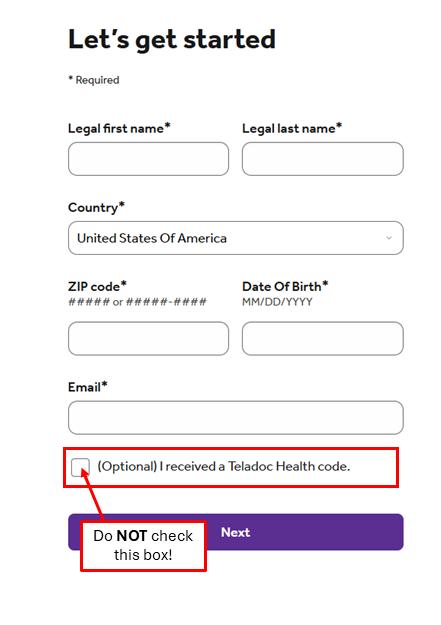
Your mental health is just as important as your physical health. Teladoc also offers convenient, confidential access to licensed professionals who can help with life’s challenges. Teladoc Mental Health services have a $0 copay. This is a FREE benefit provided to you and your dependents by Mission Critical Group.
Anxiety
Depression
Stress
Marital or relationship issues
Grief
And more
Visit www.teladochealth.com
Call 800-835-2362
Download the Teladoc Health app
Offsets your medical costs, reduces your taxes, and offers a long-term taxadvantaged savings account.
A Health Savings Account (HSA) is a tax-deductible savings plan that allows you to put aside pre-tax dollars to use for current or future health care expenses. It is also a tax-exempt tool to supplement your retirement savings. It is always yours to keep, even if you change health plans or jobs.
You are eligible to open and contribute to an HSA if you are:
Enrolled in the HSA-eligible HDHP/HSA $3,500 plan or HDHP/HSA $2,000 plan.
Not covered by another plan that is not a qualified HDHP, such as your spouse’s health plan
Not enrolled in a Health Care Flexible Spending Account
Not eligible to be claimed as a dependent on someone else’s tax return
Not enrolled in Medicare, Medicaid, or TRICARE
Not receiving Veterans Administration benefits
Ask your in-network doctor to file claims with your medical, dental, or vision carrier. Pay the doctor with your HSA debit card for any balance due.
Keep ALL records and receipts for HSA reimbursements in the event of an IRS audit.
You can change your HSA contributions at any point during the plan year.
If you meet the eligibility requirements to contribute and/or receive contributions to an HSA, your HSA will be administered by Paylocity. You will receive a debit card to manage your HSA account reimbursements. Keep in mind, available funds are limited to the balance in your HSA. You can access your Paylocity HSA account via your self-service portal.
ONLY If you enroll in the HDHP/HSA $3,500 medical plan does Mission Critical Group contribute to the HSA. Your total contributions may not exceed the 2026 IRS maximums.
You decide whether to use the money in your account to pay for qualified expenses or let it grow for future use. If you are age 55 or older, you may make a yearly catch-up contribution of up to $1,000 to your HSA. If you turn 55 at anytime during the plan year, you are eligible to make the catch-up contribution for the entire plan year.
Allows you to set aside pretax dollars from each paycheck to pay for certain IRS-approved health and dependent care expenses. We offer three Flexible Spending Accounts, administered by Paylocity .
The Health Care FSA covers qualified medical, dental, and vision expenses for you or your eligible dependents. You may contribute up to $3,400 annually to a Health Care FSA, and you are entitled to the full election from day one of your plan year. Eligible expenses include:
Dental and vision expenses
Medical deductibles and coinsurance
Prescription copays
Hearing aids and batteries
You may not contribute to a Health Care FSA if you enrolled in a High Deductible Health Plan (HDHP) and contribute to a Health Savings Account (HSA).
The maximum per plan year you can contribute to a Health Care FSA is $3,400. The maximum per plan year you can contribute to a Dependent Care FSA is $7,500 when filing jointly or head of household and $3,750 when married filing separately.
You cannot change your election during the year unless you experience a Qualifying Life Event.
Your Health Care FSA debit card can be used for health care expenses only. It cannot be used to pay for dependent care expenses.
The IRS has amended the “use it or lose it” rule to allow you to carry over up to $680 in your Health Care FSA into the next plan year. The carry-over rule does not apply to your Dependent Care FSA.
You can access the funds in your FSA two different ways:
Use your FSA debit card to pay for qualified expenses, doctor visits, and prescription copays.
Pay out-of-pocket and submit your receipts for reimbursement.
Refer to page 18 for a list of qualified FSA expenses

The Dependent Care FSA helps pay for expenses associated with caring for elder or child dependents so you or your spouse can work or attend school full-time. You can use the account to pay for daycare or babysitter expenses for your children under age 13 and qualifying older dependents, such as dependent parents. Reimbursement from your Dependent Care FSA is limited to the total amount deposited in your account at that time. To be eligible, you (and your spouse, if married) must be gainfully employed, looking for work, a full-time student, or incapable of self-care.
Overnight camps are not eligible for reimbursement (only day camps can be considered).
If your child turns age 13 midyear, you may only be reimbursed for the time the child was under age 13.
You may request reimbursement for care of a spouse or dependent of any age who spends at least eight hours a day in your home and is mentally or physically incapable of self-care.
The dependent care provider cannot be your child under age 19 or anyone claimed as a dependent on your income taxes.

Use pretax dollars to pay for your parking or public transportation expenses while commuting to work. You may contribute up to $340 per month for parking and $340 per month for transit to pay for expenses. This program is voluntary and you may participate on a month-to-month basis. Unused funds in your account may roll over to the next year.

NEW for 2026! MCG is funding $600 annually toward a Lifestyle Spending Account (LSA) for active, benefitseligible employees to use on personal wellness.
Each month, employees will receive $50 to use on eligible expenses that relate to their lifestyle, personal goals, and needs. The funds are paid in the first pay period of each month. The funds must be used within a plan year (use it or lose it). Funds will end the same day if employment ends.
The following items are only a few examples of how LSA funds may and may not be used.
Eligible Expenses Ineligible Expenses
Wellness and Recovery
Vitamins and supplements
Mental Health and Stress Management
Wellness retreats
Non-medical counseling
Stress management programs
Nutrition and Healthy Living
Nutritionist and dietitian consultations
Weight management programs
Healthy meal kits and cooking or nutrition classes
Clothing
Clothing
Shoes
Accessories
Cosmetic procedures
Cosmetic or elective procedures
Travel and Entertainment
Travel
Movies or streaming
Concerts
Gaming
Family
Donations
Pet care
Childcare or eldercare
Medical Needs
Medical therapy
Prescriptions
Diagnostic testing
To request reimbursement, submit receipts through the Paylocity Spending Account portal. Receipts must include the vendor, date, amount, description, and employee name if tied to a membership or service. If all information is provided, reimbursement will be made within 7-10 days by direct deposit or check.
Contact Your HR Team at benefits@missioncriticalgroup.com .

Who is eligible?
Contribution limits
Who owns the account?
Contributions subject to income tax?
Does interest accrue?
Contributions
Disbursement of funds
Employees not eligible for or participating in an HSA
$3,400
Money is deducted pretax from the employee’s salary every pay period. Additional individual contributions are NOT allowed.
The entire annual contribution amount is available from the beginning of the year, even if the account is not yet fully funded.
Catch-up contribution for older workers No
Portability and forfeiture Not portable. Unspent money in an FSA is lost when employment is terminated.
Must be enrolled in a High Deductible Health Plan (HDHP), have no other non-HDHP health plan, including coverage under Medicare, a spouse’s health plan, or FSA.
Money is deducted pretax from the employee’s salary every pay period. Additional individual contributions ARE allowed.
Only funds paid in by the employee and/or company are available for health care expenses.
Yes. Employees aged 55 and older may contribute up to $1,000 more to their account per year.
Yes. HSA balance is not forfeited when the employee changes employers or health plans.
Expiration All money in an FSA expires and is lost at the end of the grace period. Never expires or lost
Balance carry over (or rollover)
Subject to IRS limits.
Yes. Unused funds are carried over to the following year.
Changes to contributions Only for Qualified Life Events, such as a marriage, divorce, birth, or during Open Enrollment. On a pay period basis
Eligible health care expenses
Qualified medical expenses are those specified in the plan that would generally qualify for the medical, dental, and vision expenses deduction (e.g., copays, coinsurance, deductible,
Qualified medical expenses defined under IRC 213(d). HSAs can be used to pay premiums for Temporary Continuation of Coverage, Long Term Care, and health insurance for retirees.

The products and services listed below are examples of medical expenses eligible for payment under your HSA or Health Care FSA.
Abdominal supports
Acupuncture
Air conditioner (when necessary for relief from difficulty in breathing)
Alcoholism treatment
Ambulance
Anesthetist
Arch supports
Artificial limbs
Autoette (when used for relief of sickness/disability)
Blood tests
Blood transfusions
Braces
Cardiographs
Chiropractor
Contact lenses
Convalescent home (for medical treatment only)
Crutches
Dental treatment
Dental X-rays
Dentures
Dermatologist
Diagnostic fees
Diathermy
Drug addiction therapy
Drugs (prescription)
Elastic hosiery (prescription)
Eyeglasses
Fees paid to health institute prescribed by a doctor
FICA and FUTA tax paid for medical care service
Fluoridation unit
Guide dog
Gum treatment
Gynecologist
Healing services
Hearing aids and batteries
Hospital bills
Hydrotherapy
Insulin treatment
Lab tests
Lead paint removal
Legal fees
Lodging (away from home for outpatient care)
This list is not all-inclusive; additional expenses may qualify and the items listed may change in accordance with IRS regulations. Refer to IRS Publication 502 Medical and Dental Expenses at www.irs.gov for complete details.
Metabolism tests
Neurologist
Nursing (including board and meals)
Obstetrician
Operating room costs
Ophthalmologist
Optician
Optometrist
Oral surgery
Organ transplant (including donor’s expenses)
Orthopedic shoes
Orthopedist
Osteopath
Oxygen and oxygen equipment
Pediatrician
Physician
Physiotherapist
Podiatrist
Postnatal treatments
Practical nurse for medical services
Prenatal care
Prescription medicines
Psychiatrist
Psychoanalyst
Psychologist
Psychotherapy
Radium therapy
Registered nurse
Special school costs for the handicapped
Spinal fluid test
Splints
Surgeon
Telephone or TV equipment to assist the hard-of-hearing
Therapy equipment
Transportation expenses (relative to health care)
Ultra-violet ray treatment
Vaccines
Vitamins (if prescribed)
Wheelchair
X-rays

Helps maintain fresh breath, healthy gums and teeth, and other dental work.
Two levels of benefits are available with the DPPO plans: in-network and out-of-network. You may see any dental provider for care, but you will pay less and get the highest level of benefits with in-network providers. You could pay more if you use an out-of-network provider.
1Base
2Buy-Up


Provides your loved ones with a monetary safety net after your death and/or after an accident that causes loss of limb or function.
Life and Accidental Death and Dismemberment (AD&D) insurance through Mutual of Omaha are important to your financial security, especially if others depend on you for support or vice versa. With Life insurance, you or your beneficiary(ies) can use the coverage to pay off debts such as credit cards, loans, and bills. AD&D coverage provides specific benefits if an accident causes bodily harm or loss (e.g., the loss of a hand, foot, or eye). If death occurs from an accident, 100% of the AD&D benefit would be paid to you or your beneficiary(ies). Life and AD&D coverage amounts reduce to 65% at age 65 and 50% at age 70.
Basic Life and AD&D insurance are provided at no cost to you. You are automatically covered:
Class 1 (full-time employees) – 1½ times salary up to $200,000
Class 2 (managers and above) – 3 times salary up to $400,000
A beneficiary is the person or entity you elect to receive the death benefits of your Life and AD&D insurance policies. You can name more than one beneficiary, and you can change beneficiaries at anytime. If you name more than one beneficiary, you must identify how much each beneficiary will receive (e.g., 50% or 25%).
If you need more coverage than Basic Life and AD&D, you may buy Voluntary Life and AD&D for yourself and your dependent(s). If you do not elect Voluntary Life and AD&D insurance when first eligible or if you want to increase your benefit amount at a later date, you may need to show proof of good health. You must elect Voluntary Life and AD&D coverage for yourself before covering your spouse and/or child(ren).
Increments of $10,000 up to five times your annual salary not to exceed $500,000
Guaranteed Issue – five times annual salary not to exceed $200,000
Increments of $5,000 up to $250,000 not to exceed 100% of Employee’s benefit
Guaranteed Issue – 100% of Employee’s benefit not to exceed $50,000
Coverage ends when Spouse reaches age 70
Guaranteed Issue:
Birth to 14 days – $500
14 days to six months – $5,000
Child(ren)
Six months to age 26 – $20,000
Rates See the bswift enrollment system for rates.
When covered, you and your dependents have an opportunity to continue your Life insurance benefits if you terminate employment with Mission Critical Group. If you would like to exercise the portability/conversion option for your coverage, please contact the Human Resource Department to receive an application or call Mutual of Omaha at 800-826-8054 for more details.
Please keep in mind, you only need to fill out a portability/conversion form if you wish to continue your Life policies. Mutual of Omaha has to receive your completed forms and premium payment within 30days of your termination. If you return your forms and premium payment after 60 days, you will be outside your eligibility period, and you will not be able to continue your policies.
Provides partial income protection if you are unable to work due to a covered accident or illness.
Mission Critical Group provides Short Term Disability and Long Term Disability at no cost to you through Mutual of Omaha
STD coverage pays a percentage of your weekly salary if you are temporarily disabled and unable to work due to an illness, pregnancy, or non-work-related injury. STD benefits are not payable if the disability is due to a job-related injury or illness. If a medical condition is job-related, it is considered Workers’ Compensation, not STD.
If you were temporarily unable to work, would you be able to cover your bills?
LTD insurance pays a percentage of your monthly salary for a covered disability or injury that prevents you from working for more than 180 days. Benefits begin at the end of an elimination period and continue while you are disabled up to the maximum benefit period.
1Benefits

Complements our traditional health care programs and pays you directly for unexpected health care costs.
These benefits are voluntary elections. The costs for these plans are deducted from your paycheck.
Accident insurance through Mutual of Omaha provides affordable protection against a sudden, unforeseen accident. The Accident plans help offset the direct and indirect expenses resulting from an accident such as copayments, deductible, ambulance, physical therapy, childcare, rent, and other costs not covered by traditional health plans. See the plan document for full details.
Specific Sum Injuries Dislocations, ruptured discs, eye injuries, fractures, lacerations, concussions, etc.

These benefits are voluntary elections. The
The Hospital Indemnity plans through Mutual of Omaha help you with the high cost of medical care by paying you a cash benefit when you have an inpatient hospital stay. Unlike traditional insurance which pays a benefit to the hospital or doctor, this plan pays you directly. It is up to you how you want to use the cash benefit. These costs may include meals, travel, childcare or eldercare, deductibles, coinsurance, medication, or time away from work. See the plan document for full details.
Critical Illness insurance through Mutual of Omaha helps pay the cost of nonmedical expenses related to a covered critical illness or cancer. The plan provides a lump sum benefit payment to you upon first and second diagnosis of any covered critical illness or cancer. The benefit can help cover expenses such as lost income, out-of-town treatments, special diets, daily living, and household upkeep costs. See the plan document for full details.
Amounts Available

$5,000 increments up to $20,000
$1,000 increments up to $10,000 Child(ren)
Full Coverage
Benign brain tumor, invasive cancer, heart attack, sudden cardiac arrest, stroke, major organ failure, end state renal failure, Alzheimer’s Disease, Multiple Sclerosis, Parkinson’s Disease
Partial Coverage Carcinoma in situ, coronary artery disease
Childhood Diseases
Autism Spectrum Disorder, Cerebral Palsy, Congenital Heart Defect, Spina Bifida, Cystic Fibrosis, Diabetes Type 1, Down Syndrome
of Employee’s benefit up to $5,000
1These conditions are not all inclusive. See the plan documents for a complete list of coverage.
Health insurance covers medical bills, but if you have an emergency, an accident, or a hospital stay, you may have a lot of unexpected out-ofpocket costs to pay. Protect your savings with additional coverage from Mutual of Omaha
The Employee Assistance Program (EAP) from Mutual of Omaha helps you and family members cope with a variety of personal and work-related issues.
This confidential program helps you find solutions for personal or workplace issues. Benefits for you and your eligible dependents include unlimited telephone access to EAP professionals and up to three face-to-face sessions with a counselor. Professionals are available 24/7 to help with the following:
Relationships
Work/life balance
Stress and anxiety
Financial wellness
Substance abuse and addiction
Legal assistance

Millions of people have their identity stolen each year. IDShield provides identity theft protection and identity restoration services for you, your spouse, and up to 10 dependents in these areas:
Monitored information (email, phone, account numbers, names)
Privacy and security monitoring (internet and dark web, social media)
Comprehensive source monitoring (global black market, online chat rooms, social feeds)
Unlimited consultation (child identity theft, credit reports, data breaches)
Complete identity restoration ($1 million protection policy, unlimited service guarantee)
General (24/7 emergency access, alerts, access to licensed private investigators)
Financial account monitoring and a $1 million identity fraud protection plan

Put a law firm in the palm of your hand with LegalShield. Get legal consultation on these types of issues:
Family matters (divorce, child custody, domestic violence protection, adoption, eldercare, juvenile court, prenuptial agreements)
Financial (affidavits, consumer protection, tax audit and collection service, bankruptcy)
Home (boundary or title disputes, deeds, foreclosure, mortgages)
Estate planning (probate, trusts, wills and codicils, living wills)
Auto (driver’s license restoration, moving traffic violations, motor vehicle property damage)
General (24/7 emergency access, document review, demand letters and phone calls on your behalf, consultations)
The PerkSpot Discount Program makes it easy for you to find exclusive discounts on your favorite brands. Items are curated based on your interests so you can stay healthy and save on items, activities, and places that are most meaningful to you. Explore 30,000 national and local offers that include travel, hobbies, health and fitness, beauty, toys, pets, jewelry, services, education, entertainment, apparel, and more.
Sign up at https://higginbotham.perkspot.com.
Create your account.
Select your interests from the My Interests feature and click on Got it!
Log in or read weekly emails to get ongoing and featured discounts.
Access the program at home, work, or on the go to save money and splurge on happiness.
Once you have activated your account through the website, you can download the PerkSpot app to access exclusive deals on the go.
Stay Updated – Get notified about weekly deals.
Shop with Ease – Browse thousands of discounts by category.
Discover Local – Find savings nearby or while traveling.

You can purchase medical and preventive wellness insurance for your pets through Nationwide. Coverage is available for cats, dogs, birds, rabbits, reptiles, and other exotic animals. You can visit any veterinary clinic to receive a 50-80% reimbursement on your bills after a $250 deductible ($15,800 maximum annual benefit). Coverage includes the following benefits as well:
Pet Rx Express can save you time and money at Walmart or Sam’s Club pharmacies. Download a digital pet insurance card at mypetinsurance.com and show the card at checkout. The pharmacy will submit the claim to Nationwide and you will be reimbursed for eligible expenses.
Preventive wellness coverage for dogs and cats includes vaccinations, flea protection, deworming, and more, as well as the additional option of spay and neuter services or teeth cleaning. Wellness coverage for birds is also available.
Flexible Pricing for Different Budgets and Pet Needs
Wellness coverage for dogs and cats is based on a benefit schedule.
Coverage can be dialed up or down by category (accident, illness, hereditary and congenital, and wellness).
Accident-only coverage is available.
To obtain preferred rates, enroll for coverage at https://partnersolutions.nationwide.com/pet/ missioncriticalgroup or call 877-738-7874 Nationwide will bill you directly
Upload claims and receive reimbursements by
direct deposit.


Eligibility: 1 month of service, age 18
Entry period: Monthly
Employer match for 2026 : 100% match up to the first 5% saved
Note: To maximize the employer matching contributions, you must save in every payroll throughout the year.
Your pre-tax, Roth, and rollover contributions are always 100% vested. Your employer matching contributions are also always 100% vested.
Any profit sharing contributions are on a six-year vesting schedule (0-1 year: 0%, 2 years: 20%, 3 years: 40%, 4 years: 60%, 5 years: 80%,6 years: 100%).
First, set up your online access. Go to www.empowermyretirement.com; first-time users should click ‘Register’ and enter the requested information. If you have another account with Empower, you will need to call Empower at 800.338.4015 for a temporary PIN to access your new account.
Go online to www.empowermyretirement.com and log in to your account. Choose ‘Account,’ then select ‘Contributions.’ Click ‘Edit,’ use the slider bar to select your desired savings amount, and click ‘Continue.’ Select ‘Before Tax,’ ‘Roth,’ or ‘Split your contribution,’ then click ‘Continue.’ Review your selections, then click ‘Confirm & Continue.’
Go online to www.empowermyretirement.com and log in to your account. Choose ‘Account,’ then select ‘Investments.’ Click ‘Change My Investments,’ select the support level you want, then follow the steps to rebalance your current balance, change how your future contributions will be invested, or change how your current balance is invested. To discuss the investment options available in your plan, call the Shepherd Financial team at 844.975.4015
The maximum annual deferral is $24,500. If you turn 50-59 or 64 or older at any time during the year, you may contribute an additional $8,000, for a total contribution of $32,500. If you turn 60-63 at any time during the year, you may contribute an additional $11,500, for a total contribution of $36,600.
In-Service Distributions: If you are over the age of 59 ½ and have worked at Mission Critical Group for at least 5 years, you are eligible to request an in-service distribution from your pre-tax deferrals, Roth deferrals, rollover contributions, and employer matching contributions; this may be subject to income taxes. Go online to www.empowermyretirement.com and log into your account. Choose ‘Account,’ then select ‘Withdrawals.’ Click ‘Request a withdrawal or rollover.’
Hardship Withdrawals: Hardship withdrawals are available but may only be used to pay for medical expenses, purchase your primary residence, cover education expenses, prevent eviction or foreclosure, pay for funeral expenses, pay for repair of uninsured damage to your primary residence, or pay for casualty loss due to a catastrophic FEMA event. You will be required to keep documentation of your financial hardship on hand in case of a future audit. This distribution may be subject to income taxes and may incur an early withdrawal penalty tax if you are not at least age 59 ½. Go online to www.empowermyretirement.com and log into your account. Choose ‘Account,’ then select ‘Withdrawals.’ Click ‘Request a withdrawal or rollover.’
Yes, you may request a loan. For more information, please see the Retirement Plan Loan Guide.
Please request the Former Participant Distribution Guide.
Scan the QR code to the right for instant access to your Empower online account.

Beneficiary – Who will receive a benefit in the event of the insured’s death. A policy may have more than one beneficiary.
Coinsurance – Your share of the cost of a covered health care service, calculated as a percent (for example, 20%) of the allowed amount for the service, typically after you meet your deductible.
Copay – The fixed amount you pay for health care services received.
Deductible – The amount you owe for health care services before your health insurance begins to pay its portion. For example, if your deductible is $1,000, your plan does not pay anything until you meet your $1,000 deductible for covered health care services. The deductible may not apply to all services, including preventive care.
Employee Contribution – The amount you pay for your insurance coverage.
Employer Contribution – The amount Mission Critical Group contributes to the cost of your benefits.
Explanation of Benefits (EOB) – A statement sent by your insurance carrier that explains which procedures and services were provided, how much they cost, what portion of the claim was paid by the plan, what portion of the claim is your responsibility, and information on how you can appeal the insurer’s decision. These statements are also posted on the carrier’s website for your review.
Generic Drugs – Drugs approved by the U.S. Food and Drug Administration (FDA) to be chemically identical to corresponding brand name versions. The color or flavor of a generic medicine may be different, but the active ingredient is the same. Generic drugs are usually the most cost-effective version of any medication.
Health Savings Account (HSA) – A personal savings account that allows you to pay for qualified medical expenses with pretax dollars.
High Deductible Health Plan (HDHP) – A medical plan with a higher deductible in exchange for a lower monthly premium. You must meet the annual deductible before any benefits are paid by the plan.
In-Network – Doctors, hospitals, and other providers that contract with your insurance company to provide health care services at discounted rates.
Out-of-Network – Doctors, hospitals, and other providers that are not contracted with your insurance company. If you choose an out-of-network provider, you may be responsible for costs over the amount allowed by your insurance carrier.
Out-of-Pocket Maximum – Also known as an out-ofpocket limit. The most you pay during a policy period (usually a 12-month period) before your health insurance or plan begins to pay 100% of the allowed amount. The limit does not include your premium, charges beyond the Reasonable & Customary (R&C) or health care your plan does not cover. Check with your health insurance carrier to confirm what payments apply to the out-of-pocket maximum.
Over-the-Counter (OTC) Medications – Medications typically made available without a prescription.
Prescription Medications – Medications prescribed by a doctor. Cost of these medications is determined by their assigned tier.
Preventive Care – The care you receive to prevent illness or disease. It also includes counseling to prevent health problems.
Reasonable and Customary Allowance (R&C) – Also known as an eligible expense or the Usual and Customary (U&C). The amount your insurance company will pay for a medical service in a geographic region based on what providers in the area usually charge for the same or similar medical service.
SSNRA – Social Security Normal Retirement Age
In October 1998, Congress enacted the Women’s Health and Cancer Rights Act of 1998. This notice explains some important provisions of the Act. Please review this information carefully.
As specified in the Women’s Health and Cancer Rights Act, a plan participant or beneficiary who elects breast reconstruction in connection with a mastectomy is also entitled to the following benefits:
All stages of reconstruction of the breast on which the mastectomy was performed;
Surgery and reconstruction of the other breast to produce a symmetrical appearance; and
Prostheses and treatment of physical complications of the mastectomy, including lymphedema.
Health plans must determine the manner of coverage in consultation with the attending physician and the patient. Coverage for breast reconstruction and related services may be subject to deductibles and coinsurance amounts that are consistent with those that apply to other benefits under the plan.
This notice is being provided to ensure that you understand your right to apply for group health insurance coverage. You should read this notice even if you plan to waive coverage at this time.
of
or Becoming
for Medicaid or a state Children’s Health Insurance Program (CHIP)
If you are declining coverage for yourself or your dependents because of other health insurance or group health plan coverage, you may be able to later enroll yourself and your dependents in this plan if you or your dependents lose eligibility for that other coverage (or if the employer stops contributing toward your or your dependents’ other coverage). However, you must enroll within 31 days after your or your dependents’ other coverage ends (or after the employer that sponsors that coverage stops contributing toward the other coverage).
If you or your dependents lose eligibility under a Medicaid plan or CHIP, or if you or your dependents
become eligible for a subsidy under Medicaid or CHIP, you may be able to enroll yourself and your dependents in this plan. You must provide notification within 60 days after you or your dependent is terminated from, or determined to be eligible for, such assistance.
If you have a new dependent as a result of a marriage, birth, adoption, or placement for adoption, you may be able to enroll yourself and your dependents. However, you must enroll within 31 days after the marriage, birth, or placement for adoption.
To request special enrollment or obtain more information, contact:
Mission Critical Group Human Resources
7300 State Hwy 121 Suite 300 McKinney TX 75070 benefits@missioncriticalgroup.com
Please read this notice carefully and keep it where you can find it. This notice has information about your current prescription drug coverage with Mission Critical Group and about your options under Medicare’s prescription drug coverage. This information can help you decide whether or not you want to enroll in a Medicare drug plan. Information about where you can get help to make decisions about your prescription drug coverage is at the end of this notice.
If neither you nor any of your covered dependents are eligible for or have Medicare, this notice does not apply to you or the dependents, as the case may be. However, you should still keep a copy of this notice in the event you or a dependent should qualify for coverage under Medicare in the future. Please note, however, that later notices might supersede this notice.
1. Medicare prescription drug coverage became available in 2006 to everyone with Medicare. You can get this coverage through a Medicare Prescription Drug Plan or a Medicare Advantage Plan that offers prescription drug coverage. All Medicare prescription drug plans provide at least a standard level of coverage set by Medicare. Some plans may also offer more coverage for a higher monthly premium.
2. Mission Critical Group has determined that the prescription drug coverage offered by the Mission Critical Group medical plan is, on average for all plan participants, expected to pay out as much as the standard Medicare prescription drug coverage pays and is considered Creditable Coverage.
3. Because your existing coverage is, on average, at least as good as standard Medicare prescription drug coverage, you can keep this coverage and not pay a higher premium (a penalty) if you later decide to enroll in a Medicare prescription drug plan, as long as you later enroll within specific time periods.
You can enroll in a Medicare prescription drug plan when you first become eligible for Medicare. If you decide to wait to enroll in a Medicare prescription drug plan, you may enroll later, during Medicare Part D’s annual enrollment period, which runs each year from October 15 through December 7 but as a general rule, if you delay your enrollment in Medicare Part D after first becoming eligible to enroll, you may have to pay a higher premium (a penalty).
You should compare your current coverage, including which drugs are covered at what cost, with the coverage and cost of the plans offering Medicare prescription drug coverage in your area. See the Plan’s summary plan description for a summary of the Plan’s prescription drug coverage. If you don’t have a copy, you can get one by contacting Mission Critical Group at the phone number or address listed at the end of this section.
If you choose to enroll in a Medicare prescription drug plan and cancel your current Mission Critical Group prescription drug coverage, be aware that you and your dependents may not be able to get this coverage back. To regain coverage, you would
have to re-enroll in the Plan, pursuant to the Plan’s eligibility and enrollment rules. You should review the Plan’s summary plan description to determine if and when you are allowed to add coverage.
If you cancel or lose your current coverage and do not have prescription drug coverage for 63 days or longer prior to enrolling in the Medicare prescription drug coverage, your monthly premium will be at least 1% per month greater for every month that you did not have coverage for as long as you have Medicare prescription drug coverage. For example, if nineteen months lapse without coverage, your premium will always be at least 19% higher than it would have been without the lapse in coverage.
For more information about this notice or your current prescription drug coverage:
Contact the Human Resources Department at benefits@missioncriticalgroup.com
NOTE: You will receive this notice annually and at other times in the future, such as before the next period you can enroll in Medicare prescription drug coverage and if this coverage changes. You may also request a copy.
For more information about your options under Medicare prescription drug coverage:
More detailed information about Medicare plans that offer prescription drug coverage is in the “Medicare & You” handbook. You will get a copy of the handbook in the mail every year from Medicare. You may also be contacted directly by Medicare prescription drug plans. For more information about Medicare prescription drug coverage:
Visit www.medicare.gov
Call your State Health Insurance Assistance Program (see the inside back cover of your copy of the “Medicare & You” handbook for their telephone number) for personalized help.
Call 1-800-MEDICARE (1-800-633-4227). TTY users should call 877-486-2048.
If you have limited income and resources, extra help paying for Medicare prescription drug coverage is available. Information about this extra help is available from the Social Security
Administration (SSA) online at www.socialsecurity. gov, or you can call them at 800-772-1213. TTY users should call 800-325-0778
Remember: Keep this Creditable Coverage notice. If you enroll in one of the new plans approved by Medicare which offer prescription drug coverage, you may be required to provide a copy of this notice when you join to show whether or not you have maintained creditable coverage and whether or not you are required to pay a higher premium (a penalty).
January 1, 2026
Mission Critical Group Human Resources
7300 State Hwy 121 Suite 300 McKinney TX 75070 benefits@missioncriticalgroup.com
This notice describes how medical information about you may be used and disclosed and how you can get access to this information. Please review it carefully.
Effective Date of Notice: September 23, 2013
Mission Critical Group Plan is required by law to take reasonable steps to ensure the privacy of your personally identifiable health information and to inform you about:
1. the Plan’s uses and disclosures of Protected Health Information (PHI);
2. your privacy rights with respect to your PHI;
3. the Plan’s duties with respect to your PHI;
4. your right to file a complaint with the Plan and to the Secretary of the U.S. Department of Health and Human Services; and
5. the person or office to contact for further information about the Plan’s privacy practices. The term “Protected Health Information” (PHI) includes all individually identifiable health information transmitted or maintained by the Plan, regardless of form (oral, written, electronic).
Upon your request, the Plan is required to give you access to your PHI in order to inspect and copy it.
Use and disclosure of your PHI may be required by the Secretary of the Department of Health and Human Services to investigate or determine the Plan’s compliance with the privacy regulations.
Uses and disclosures to carry out treatment, payment and health care operations.
The Plan and its business associates will use PHI without your authorization to carry out treatment, payment and health care operations. The Plan and its business associates (and any health insurers providing benefits to Plan participants) may also disclose the following to the Plan’s Board of Trustees: (1) PHI for purposes related to Plan administration (payment and health care operations); (2) summary health information for purposes of health or stop loss insurance underwriting or for purposes of modifying the Plan; and (3) enrollment information (whether an individual is eligible for benefits under the Plan).
The Trustees have amended the Plan to protect your PHI as required by federal law.
Treatment is the provision, coordination or management of health care and related services. It also includes but is not limited to consultations and referrals between one or more of your providers.
For example, the Plan may disclose to a treating physician the name of your treating radiologist so that the physician may ask for your X-rays from the treating radiologist.
Payment includes but is not limited to actions to make coverage determinations and payment (including billing, claims processing, subrogation, reviews for medical necessity and appropriateness of care, utilization review and preauthorizations).
For example, the Plan may tell a treating doctor whether you are eligible for coverage or what percentage of the bill will be paid by the Plan.
Health care operations include but are not limited to quality assessment and improvement, reviewing competence or qualifications of health care professionals, underwriting, premium rating and other insurance activities relating to creating or
renewing insurance contracts. It also includes case management, conducting or arranging for medical review, legal services and auditing functions including fraud and abuse compliance programs, business planning and development, business management and general administrative activities. However, no genetic information can be used or disclosed for underwriting purposes.
For example, the Plan may use information to project future benefit costs or audit the accuracy of its claims processing functions.
Uses and disclosures that require that you be given an opportunity to agree or disagree prior to the use or release.
Unless you object, the Plan may provide relevant portions of your protected health information to a family member, friend or other person you indicate is involved in your health care or in helping you receive payment for your health care. Also, if you are not capable of agreeing or objecting to these disclosures because of, for instance, an emergency situation, the Plan will disclose protected health information (as the Plan determines) in your best interest. After the emergency, the Plan will give you the opportunity to object to future disclosures to family and friends.
Uses and disclosures for which your consent, authorization or opportunity to object is not required.
The Plan is allowed to use and disclose your PHI without your authorization under the following circumstances:
1. For treatment, payment and health care operations.
2. Enrollment information can be provided to the Trustees.
3. Summary health information can be provided to the Trustees for the purposes designated above.
4. When required by law.
5. When permitted for purposes of public health activities, including when necessary to report product defects and to permit product recalls. PHI may also be disclosed if you have been exposed to a communicable disease or are at risk of spreading a disease or condition, if required by law.
6. When required by law to report information about abuse, neglect or domestic violence to public authorities if there exists a reasonable belief that you may be a victim of abuse, neglect or domestic violence. In which case, the Plan will promptly inform you that such a disclosure has been or will be made unless that notice would cause a risk of serious harm. For the purpose of reporting child abuse or neglect, it is not necessary to inform the minor that such a disclosure has been or will be made. Disclosure may generally be made to the minor’s parents or other representatives although there may be circumstances under federal or state law when the parents or other representatives may not be given access to the minor’s PHI.
7. The Plan may disclose your PHI to a public health oversight agency for oversight activities required by law. This includes uses or disclosures in civil, administrative or criminal investigations; inspections; licensure or disciplinary actions (for example, to investigate complaints against providers); and other activities necessary for appropriate oversight of government benefit programs (for example, to investigate Medicare or Medicaid fraud).
8. The Plan may disclose your PHI when required for judicial or administrative proceedings. For example, your PHI may be disclosed in response to a subpoena or discovery request.
9. When required for law enforcement purposes, including for the purpose of identifying or locating a suspect, fugitive, material witness or missing person. Also, when disclosing information about an individual who is or is suspected to be a victim of a crime but only if the individual agrees to the disclosure or the Plan is unable to obtain the individual’s agreement because of
emergency circumstances. Furthermore, the law enforcement official must represent that the information is not intended to be used against the individual, the immediate law enforcement activity would be materially and adversely affected by waiting to obtain the individual’s agreement and disclosure is in the best interest of the individual as determined by the exercise of the Plan’s best judgment.
10. When required to be given to a coroner or medical examiner for the purpose of identifying a deceased person, determining a cause of death or other duties as authorized by law. Also, disclosure is permitted to funeral directors, consistent with applicable law, as necessary to carry out their duties with respect to the decedent.
11. When consistent with applicable law and standards of ethical conduct if the Plan, in good faith, believes the use or disclosure is necessary to prevent or lessen a serious and imminent threat to the health or safety of a person or the public and the disclosure is to a person reasonably able to prevent or lessen the threat, including the target of the threat.
12. When authorized by and to the extent necessary to comply with workers’ compensation or other similar programs established by law.
Except as otherwise indicated in this notice, uses and disclosures will be made only with your written authorization subject to your right to revoke such authorization.
Uses and disclosures that require your written authorization.
Other uses or disclosures of your protected health information not described above will only be made with your written authorization. For example, in general and subject to specific conditions, the Plan will not use or disclose your psychiatric notes; the Plan will not use or disclose your protected health information for marketing; and the Plan will not sell your protected health information, unless you provide a written authorization to do so. You may revoke written authorizations at any time, so long as the revocation is in writing. Once the Plan receives your written revocation, it will only be effective for
future uses and disclosures. It will not be effective for any information that may have been used or disclosed in reliance upon the written authorization and prior to receiving your written revocation.
You may request the Plan to restrict the uses and disclosures of your PHI. However, the Plan is not required to agree to your request (except that the Plan must comply with your request to restrict a disclosure of your confidential information for payment or health care operations if you paid for the services to which the information relates in full, out of pocket).
You or your personal representative will be required to submit a written request to exercise this right. Such requests should be made to the Plan’s Privacy Official.
The Plan will accommodate reasonable requests to receive communications of PHI by alternative means or at alternative locations if necessary to prevent a disclosure that could endanger you.
You or your personal representative will be required to submit a written request to exercise this right.
Such requests should be made to the Plan’s Privacy Official.
You have a right to inspect and obtain a copy of your PHI contained in a “designated record set,” for as long as the Plan maintains the PHI. If the information you request is in an electronic designated record set, you may request that these records be transmitted electronically to yourself or a designated individual.
Includes all individually identifiable health information transmitted or maintained by the Plan, regardless of form.
Includes the medical records and billing records about individuals maintained by or for a covered health care provider; enrollment, payment, billing, claims adjudication and case or medical management record systems maintained by or for the Plan; or other information used in whole or in part by or for the Plan to make decisions about individuals. Information used for quality control or peer review analyses and not used to make decisions about individuals is not in the designated record set.
The requested information will be provided within 30 days if the information is maintained on site or within 60 days if the information is maintained off site. A single 30-day extension is allowed if the Plan is unable to comply with the deadline.
You or your personal representative will be required to submit a written request to request access to the PHI in your designated record set. Such requests should be made to the Plan’s Privacy Official. If access is denied, you or your personal representative will be provided with a written denial, setting forth the basis for the denial, a description of how you may appeal the Plan’s decision and a description of how you may complain to the Secretary of the U.S. Department of Health and Human Services.
The Plan may charge a reasonable, cost-based fee for copying records at your request.
You have the right to request the Plan to amend your PHI or a record about you in your designated record set for as long as the PHI is maintained in the designated record set.
The Plan has 60 days after the request is made to act on the request. A single 30-day extension is allowed if the Plan is unable to comply with the deadline. If the request is denied in whole or part, the Plan must provide you with a written denial that explains the basis for the denial. You or your personal representative may then submit a written statement disagreeing with the denial and have that statement included with any future disclosures of your PHI.
Such requests should be made to the Plan’s Privacy Official.
You or your personal representative will be required to submit a written request to request amendment of the PHI in your designated record set.
At your request, the Plan will also provide you an accounting of disclosures by the Plan of your PHI during the six years prior to the date of your request. However, such accounting will not include PHI disclosures made: (1) to carry out treatment, payment or health care operations; (2) to individuals about their own PHI; (3) pursuant to your authorization; (4) prior to April 14, 2003; and (5) where otherwise permissible under the law and the Plan’s privacy practices. In addition, the Plan need not account for certain incidental disclosures.
If the accounting cannot be provided within 60 days, an additional 30 days is allowed if the individual is given a written statement of the reasons for the delay and the date by which the accounting will be provided.
If you request more than one accounting within a 12-month period, the Plan will charge a reasonable, cost-based fee for each subsequent accounting. Such requests should be made to the Plan’s Privacy Official.
You have the right to obtain a paper copy of this Notice. Such requests should be made to the Plan’s Privacy Official.
You may exercise your rights through a personal representative. Your personal representative will be required to produce evidence of his/her authority to act on your behalf before that person will be given access to your PHI or allowed to take any action for you. Proof of such authority may take one of the following forms:
1. a power of attorney for health care purposes;
2. a court order of appointment of the person as the conservator or guardian of the individual; or
3. an individual who is the parent of an unemancipated minor child may generally act as the child’s personal representative (subject to state law).
The Plan retains discretion to deny access to your PHI by a personal representative to provide protection to those vulnerable people who depend on others to exercise their rights under these rules and who may be subject to abuse or neglect.
The Plan is required by law to maintain the privacy of PHI and to provide individuals (participants and beneficiaries) with notice of the Plan’s legal duties and privacy practices.
This Notice is effective September 23, 2013, and the Plan is required to comply with the terms of this Notice. However, the Plan reserves the right to change its privacy practices and to apply the changes to any PHI received or maintained by the Plan prior to that date. If a privacy practice is changed, a revised version of this Notice will be provided to all participants for whom the Plan still maintains PHI. The revised Notice will be distributed in the same manner as the initial Notice was provided or in any other permissible manner.
If the revised version of this Notice is posted, you will also receive a copy of the Notice or information about any material change and how to receive a copy of the Notice in the Plan’s next annual mailing. Otherwise, the revised version of this Notice will be distributed within 60 days of the effective date of any material change to the Plan’s policies regarding the uses or disclosures of PHI, the individual’s privacy rights, the duties of the Plan or other privacy practices stated in this Notice.
When using or disclosing PHI or when requesting PHI from another covered entity, the Plan will make reasonable efforts not to use, disclose or request more than the minimum amount of PHI necessary to accomplish the intended purpose of the use, disclosure or request, taking into consideration practical and technological limitations. When required by law, the Plan will restrict disclosures to the limited data set, or otherwise as necessary, to the minimum necessary information to accomplish the intended purpose.
However, the minimum necessary standard will not apply in the following situations:
1. disclosures to or requests by a health care provider for treatment;
2. uses or disclosures made to the individual;
3. disclosures made to the Secretary of the U.S. Department of Health and Human Services;
4. uses or disclosures that are required by law; and
5. uses or disclosures that are required for the Plan’s compliance with legal regulations.
This notice does not apply to information that has been de-identified. De-identified information is information that does not identify an individual and with respect to which there is no reasonable basis to believe that the information can be used to identify an individual.
The Plan may disclose “summary health information” to the Trustees for obtaining insurance premium bids or modifying, amending or terminating the Plan. “Summary health information” summarizes the claims history, claims expenses or type of claims experienced by participants and excludes identifying information in accordance with HIPAA.
The Plan is required by law to maintain the privacy of participants’ PHI and to provide individuals with notice of its legal duties and privacy practices. In the event of a breach of unsecured PHI, the Plan will notify affected individuals of the breach.
If you believe that your privacy rights have been violated, you may complain to the Plan. Such complaints should be made to the Plan’s Privacy Official.
You may file a complaint with the Secretary of the U.S. Department of Health and Human Services, Hubert H. Humphrey Building, 200 Independence Avenue SW, Washington, D.C. 20201. The Plan will not retaliate against you for filing a complaint.
If you have any questions regarding this notice or the subjects addressed in it, you may contact the Plan’s Privacy Official. Such questions should be directed to the Plan’s Privacy Official at:
Mission Critical Group Human Resources
7300 State Hwy 121 Suite 300 McKinney TX 75070 benefits@missioncriticalgroup.com Conclusion
PHI use and disclosure by the Plan is regulated by a federal law known as HIPAA (the Health Insurance Portability and Accountability Act). You may find these rules at 45 Code of Federal Regulations Parts 160 and 164. The Plan intends to comply with these regulations. This Notice attempts to summarize the regulations. The regulations will supersede any discrepancy between the information in this Notice and the regulations.
If you or your children are eligible for Medicaid or CHIP and you’re eligible for health coverage from your employer, your state may have a premium assistance program that can help pay for coverage, using funds from their Medicaid or CHIP programs. If you or your children aren’t eligible for Medicaid or CHIP, you won’t be eligible for these premium assistance programs but you may be able to buy individual insurance coverage through the Health Insurance Marketplace. For more information, visit www.healthcare.gov.
If you or your dependents are already enrolled in Medicaid or CHIP and you live in a State listed below, contact your State Medicaid or CHIP office to find out if premium assistance is available.
If you or your dependents are NOT currently enrolled in Medicaid or CHIP, and you think you or any of your dependents might be eligible for either of these programs, contact your State Medicaid or CHIP office or dial 1-877-KIDS NOW or www. insurekidsnow.gov to find out how to apply. If you qualify, ask your state if it has a program that might help you pay the premiums for an employersponsored plan.
If you or your dependents are eligible for premium assistance under Medicaid or CHIP, as well as eligible under your employer plan, your employer must allow you to enroll in your employer plan if you aren’t already enrolled. This is called a “special enrollment” opportunity, and you must request coverage within 60 days of being determined eligible for premium assistance. If you have questions about enrolling in your employer plan, contact the Department of Labor at www.askebsa. dol.gov or call 1-866-444-EBSA (3272).
If you live in one of the following States, you may be eligible for assistance paying your employer health plan premiums. The following list of States is current as of July 31, 2025. Contact your State for more information on eligibility.
Website: http://www.myalhipp.com/
Phone: 1-855-692-5447
The AK Health Insurance Premium Payment Program Website: http:// myakhipp.com/
Phone: 1-866-251-4861
Email: CustomerService@MyAKHIPP.com
Medicaid Eligibility: https://health.alaska.gov/dpa/Pages/default.aspx
Website: http://myarhipp.com/
Phone: 1-855-MyARHIPP (855-692-7447)
Health Insurance Premium Payment (HIPP) Program Website: http:// dhcs.ca.gov/hipp
Phone: 916-445-8322
Fax: 916-440-5676
Email: hipp@dhcs.ca.gov
Colorado – Health First Colorado (Colorado’s Medicaid Program) and Child Health Plan Plus (CHP+)
Health First Colorado website: https://www.healthfirstcolorado.com/
Health First Colorado Member Contact Center: 1-800-221-3943/State Relay 711
CHP+: https://hcpf.colorado.gov/child-health-plan-plus
CHP+ Customer Service: 1-800-359-1991/State Relay 711
Health Insurance Buy-In Program (HIBI): https://www.mycohibi.com/ HIBI Customer Service: 1-855-692-6442
Website: https://www.flmedicaidtplrecovery.com/ flmedicaidtplrecovery.com/hipp/index.html
Phone: 1-877-357-3268
GA HIPP Website: https://medicaid.georgia.gov/health-insurancepremium-payment-program-hipp
Phone: 678-564-1162, Press 1
GA CHIPRA Website: https://medicaid.georgia.gov/programs/thirdparty-liability/childrens-health-insurance-program-reauthorizationact-2009-chipra
Phone: 678-564-1162, Press 2
Indiana – Medicaid
Health Insurance Premium Payment Program
All other Medicaid
Website: https://www.in.gov/medicaid/ http://www.in.gov/fssa/dfr/ Family and Social Services Administration Phone: 1-800-403-0864
Member Services Phone: 1-800-457-4584
– Medicaid and CHIP (Hawki)
Medicaid Website: https://hhs.iowa.gov/programs/welcome-iowamedicaid
Medicaid Phone: 1-800-338-8366
Hawki Website: https://hhs.iowa.gov/programs/welcome-iowamedicaid/iowa-health-link/hawki
Hawki Phone: 1-800-257-8563
HIPP Website: https://hhs.iowa.gov/programs/welcome-iowamedicaid/fee-service/hipp
HIPP Phone: 1-888-346-9562
Kansas – Medicaid
Website: https://www.kancare.ks.gov/
Phone: 1-800-792-4884
HIPP Phone: 1-800-967-4660
Kentucky Integrated Health Insurance Premium Payment Program (KI-HIPP) Website: https://chfs.ky.gov/agencies/dms/member/Pages/ kihipp.aspx
Phone: 1-855-459-6328
Email: KIHIPP.PROGRAM@ky.gov
KCHIP Website: https://kynect.ky.gov
Phone: 1-877-524-4718
Kentucky Medicaid Website: https://chfs.ky.gov/agencies/dms
Website: www.medicaid.la.gov or www.ldh.la.gov/lahipp
Phone: 1-888-342-6207 (Medicaid hotline) or 1-855-618-5488 (LaHIPP) Maine – Medicaid
Enrollment Website: https://www.mymaineconnection.gov/benefits/ s/?language=en_US
Phone: 1-800-442-6003
TTY: Maine relay 711
Private Health Insurance Premium Webpage: https://www.maine.gov/ dhhs/ofi/applications-forms
Phone: 1-800-977-6740
TTY: Maine Relay 711 Massachusetts – Medicaid and CHIP
Website: https://www.mass.gov/masshealth/pa
Phone: 1-800-862-4840
TTY: 711
Email: masspremassistance@accenture.com
Website: https://mn.gov/dhs/health-care-coverage/
Phone: 1-800-657-3672
Website: http://www.dss.mo.gov/mhd/participants/pages/hipp.htm
Phone: 573-751-2005
Website: https://dphhs.mt.gov/MontanaHealthcarePrograms/HIPP
Phone: 1-800-694-3084
Email: HHSHIPPProgram@mt.gov
Website: http://www.ACCESSNebraska.ne.gov
Phone: 1-855-632-7633 Lincoln: 402-473-7000 Omaha: 402-595-1178
http://dhcfp.nv.gov
Phone: 1-800-992-0900
Website: https://www.dhhs.nh.gov/programs-services/medicaid/ health-insurance-premium-program
Phone: 603-271-5218
Toll free number for the HIPP program: 1-800-852-3345, ext. 15218
Email: DHHS.ThirdPartyLiabi@dhhs.nh.gov
Medicaid Website: http://www.state.nj.us/humanservices/dmahs/ clients/medicaid/
Phone: 1-800-356-1561
CHIP Premium Assistance Phone: 609-631-2392
CHIP Website: http://www.njfamilycare.org/index.html
CHIP Phone: 1-800-701-0710 (TTY: 711)
Medicaid
Website: https://www.health.ny.gov/health_care/medicaid/ Phone: 1-800-541-2831
Website: https://medicaid.ncdhhs.gov
Phone: 919-855-4100
Website: https://www.hhs.nd.gov/healthcare Phone: 1-844-854-4825
Website: http://www.insureoklahoma.org
Website: https://healthcare.oregon.gov/Pages/index.aspx
Website: https://www.pa.gov/en/services/dhs/apply-for-medicaidhealth-insurance-premium-payment-program-hipp.html
Phone: 1-800-692-7462
CHIP Website: https://www.dhs.pa.gov/chip/pages/chip.aspx
CHIP Phone: 1-800-986-KIDS (5437)
Rhode Island – Medicaid and CHIP
Website: http://www.eohhs.ri.gov/
Phone: 1-855-697-4347 or 401-462-0311 (Direct RIte Share Line) South Carolina – Medicaid
Website: https://www.scdhhs.gov
Phone: 1-888-549-0820
Website: https://dss.sd.gov
Phone: 1-888-828-0059
Website: https://www.hhs.texas.gov/services/financial/healthinsurance-premium-payment-hipp-program
Phone: 1-800-440-0493
Utah’s Premium Partnership for Health Insurance (UPP) Website: https://medicaid.utah.gov/upp/ Email: upp@utah.gov Phone: 1-888-222-2542
Adult Expansion Website: https://medicaid.utah.gov/expansion/ Utah Medicaid Buyout Program Website: https://medicaid.utah.gov/ buyout-program/
CHIP Website: https://chip.utah.gov/
Website: https://dvha.vermont.gov/members/medicaid/hipp-program Phone: 1-800-250-8427
Website: https://coverva.dmas.virginia.gov/learn/premium-assistance/ famis-select https://coverva.dmas.virginia.gov/learn/premium-assistance/healthinsurance-premium-payment-hipp-programs Medicaid/CHIP Phone: 1-800-432-5924
Website: https://www.hca.wa.gov/ Phone: 1-800-562-3022
https://dhhr.wv.gov/bms/ http://mywvhipp.com/ Medicaid Phone: 304-558-1700
Toll-free phone: 1-855-MyWVHIPP (1-855-699- 8447)
Website: https://www.dhs.wisconsin.gov/badgercareplus/p-10095.htm Phone: 1-800-362-3002
Wyoming – Medicaid
Website: https://health.wyo.gov/healthcarefin/medicaid/programsand-eligibility/ Phone: 1-800-251-1269
To see if any other States have added a premium assistance program since July 31, 2025, or for more information on special enrollment rights, can contact either:
U.S. Department of Labor Employee Benefits Security Administration www.dol.gov/agencies/ebsa 1-866-444-EBSA (3272)
U.S. Department of Health and Human Services Centers for Medicare & Medicaid Services www.cms.hhs.gov
1-877-267-2323 , Menu Option 4, Ext. 61565
Under the Federal Consolidated Omnibus Budget Reconciliation Act of 1985 (COBRA), if you are covered under the Mission Critical Group group health plan you and your eligible dependents may be entitled to continue your group health benefits coverage under the Mission Critical Group plan after you have left employment with the company. If you wish to elect COBRA coverage, contact your Human Resources Department for the applicable deadlines to elect coverage and pay the initial premium.
Plan Contact Information
Mission Critical Group Human Resources
7300 State Hwy 121 Suite 300 McKinney TX 75070 benefits@missioncriticalgroup.com
When you get emergency care or get treated by an out-of-network provider at an in-network hospital or ambulatory surgical center, you are protected from surprise billing or balance billing.
What is “balance billing” (sometimes called “surprise billing”)?
When you see a doctor or other health care provider, you may owe certain out-of-pocket costs, such as a copayment, coinsurance, and/or a deductible. You may have other costs or have to pay the entire bill if you see a provider or visit a health care facility that isn’t in your health plan’s network.
“Out-of-network” describes providers and facilities that have not signed a contract with your health plan. Out-of-network providers may be permitted to bill you for the difference between what your plan agreed to pay and the full amount charged for a service. This is called “balance billing.” This amount is likely more than in-network costs for the same service and might not count toward your annual out-of-pocket limit.
“Surprise billing” is an unexpected balance bill. This can happen when you can’t control who is involved in your care—like when you have an emergency or when you schedule a visit at an in-network facility but are unexpectedly treated by an out-of-network provider.
You are protected from balance billing for:
Emergency services – If you have an emergency medical condition and get emergency services from an out-of-network provider or facility, the most the provider or facility may bill you is your plan’s in-network cost-sharing amount (such as copayments and coinsurance). You cannot be balance billed for these emergency services. This includes services you may get after you are in stable condition, unless you give written consent and give up your protections not to be balanced billed for these post-stabilization services.
Certain services at an in-network hospital or ambulatory surgical center – When you
get services from an in-network hospital or ambulatory surgical center, certain providers there may be out-of-network. In these cases, the most those providers may bill you is your plan’s in-network cost-sharing amount. This applies to emergency medicine, anesthesia, pathology, radiology, laboratory, neonatology, assistant surgeon, hospitalist, or intensivist services. These providers cannot balance bill you and may not ask you to give up your protections not to be balance billed.
If you get other services at these in-network facilities, out-of-network providers cannot balance bill you, unless you give written consent and give up your protections.
You are never required to give up your protections from balance billing. You also are not required to get care out-of-network. You can choose a provider or facility in your plan’s network.
When balance billing is not allowed, you also have the following protections:
You are only responsible for paying your share of the cost (like the copayments, coinsurance, and deductibles that you would pay if the provider or facility was in-network). Your health plan will pay out-of-network providers and facilities directly.
Your health plan generally must:
• Cover emergency services without requiring you to get approval for services in advance (prior authorization).
• Cover emergency services by out-of-network providers.
• Base what you owe the provider or facility (cost-sharing) on what it would pay an innetwork provider or facility and show that amount in your explanation of benefits.
• Count any amount you pay for emergency services or out-of-network services toward your deductible and out-of-pocket limit. If you believe you have been wrongly billed, you may contact your insurance provider. Visit www. cms.gov/nosurprises for more information about your rights under federal law.
When key parts of the health care law take effect in 2014, there will be a new way to buy health insurance: the Health Insurance Marketplace. To assist you as you evaluate options for you and your family, this notice provides some basic information about the new Marketplace and employment based health coverage offered by your employer.
The Marketplace is designed to help you find health insurance that meets your needs and fits your budget. The Marketplace offers “one-stop shopping” to find and compare private health insurance options. You may also be eligible for a new kind of tax credit that lowers your monthly premium right away. Open enrollment for health insurance coverage through the Marketplace begins in October 2013 for coverage starting as early as January 1, 2014.
Can I Save Money on my Health Insurance Premiums in the Marketplace?
You may qualify to save money and lower your monthly premium, but only if your employer does not offer coverage, or offers coverage that doesn’t meet certain standards. The savings on your premium that you’re eligible for depends on your household income.
Does Employer Health Coverage Affect Eligibility for Premium Savings through the Marketplace?
Yes. If you have an offer of health coverage from your employer that meets certain standards, you will not be eligible for a tax credit through the Marketplace and may wish to enroll in your employer’s health plan. However, you may be eligible for a tax credit that lowers your monthly premium, or a reduction in certain cost-sharing if your employer does not offer coverage to you at all or does not offer coverage that meets certain standards. If the cost of a plan from your employer that would cover you (and not any other members of your family) is more than 9.5% of your household income for the year, or if the coverage your employer provides does not meet the “minimum
value” standard set by the Affordable Care Act, you may be eligible for a tax credit.1
Note: If you purchase a health plan through the Marketplace instead of accepting health coverage offered by your employer, then you may lose the employer contribution (if any) to the employeroffered coverage. Also, this employer contribution — as well as your employee contribution to employeroffered coverage — is often excluded from income for Federal and State income tax purposes. Your payments for coverage through the Marketplace are made on an after-tax basis.
For more information about your coverage offered by your employer, please check your summary plan description or contact Human Resources.
The Marketplace can help you evaluate your coverage options, including your eligibility for coverage through the Marketplace and its cost. Please visit www.healthcare.gov for more information, including an online application for health insurance coverage and contact information for a Health Insurance Marketplace in your area.
This section contains information about any health coverage offered by your employer. If you decide to complete an application for coverage in the Marketplace, you will be asked to provide this information. This information is numbered to correspond to the Marketplace application
3. Employer Name: Mission Critical Group LLC
5. Employer Address:
7300 State Hwy 121, Ste 300
4. Employer Identification Number (EIN): 92-3164405
6. Employer Phone Number: 877-881-278
7. City: McKinney 8. State: TX 9. ZIP Code: 75070
10. Who can we contact about employee health coverage at this job?: Human Resources / Sr. Benefit Specialist
11. Phone Number (if different from above): N/A
12. E-Mail Address: benefits@missioncriticalgroup.com
Here is some basic information about health coverage offered by this employer:
All full-time employees working a minimum of 30 hours per week are eligible to participate in the health benefit programs. You may also enroll your eligible dependents, including:
Your legal or domestic partner
Your children under age 26
Any child under age 26 for whom you have been granted legal custody or required to cover as a part of a qualified medical child support order
Any dependent child age 26 and older who is medically certified as disabled and is chiefly dependent upon the employee for support and maintenance
The coverage offered by this employer meets the minimum value standard, and the cost of this coverage to you is intended to be affordable, based on employee wages.
NOTE: Even if your employer intends your coverage to be affordable, you may still be eligible for a premium discount through the Marketplace. The Marketplace will use your household in-come, along with other factors, to determine whether you may be eligible for a premium dis-count. If, for example, your wages vary from week to week (perhaps you are an hourly employee or you work on a commission basis), if you are newly employed mid-year, or if you have other income losses, you may still qualify for a premium discount.
If you decide to shop for coverage in the Marketplace, www.healthcare.gov will guide you through the process.
1 An employer-sponsored health plan meets the “minimum value standard” if the plan’s share of the total allowed benefit costs covered by the plan is no less than 60 percent of such costs.
This brochure highlights the main features of the Mission Critical Group employee benefits program. It does not include all plan rules, details, limitations and exclusions. The terms of your benefit plans are governed by legal documents, including insurance contracts. Should there be an inconsistency between this brochure and the legal plan documents, the plan documents are the final authority. Mission Critical Group reserves the right to change or discontinue its employee benefits plans anytime.